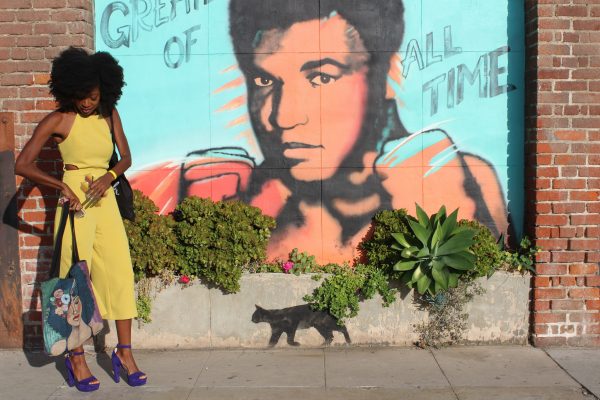When we talk about black maybe
We talk about situations
Of people of color and because you are that color
You endure obstacles and opposition
And not all the time from, from other nationalities
Sometimes it come from your own kind
Or maybe even your own mind
You get judged, you get laughed at, you get looked at wrong
You get sighted for not being strong
The struggle of just being you
The struggle of just being us, black maybe
-Common
Afriend of mine, a black friend, wrote this to me in a text message after watching one of the teaser trailers for the series, entitled Seeds Of Black Excellence:
“It was good for the black community, but I was just thinking maybe you shouldn’t focus exclusively on black people so hard. I mean it kinda narrows the audience, and let’s be real. Black people aren’t always the biggest supporters of their own kind. Keep it fun and funky with constant homages to blacks, but don’t alienate other races.”
The concept of the trailer and its title was my character delivering a mission statement to the three other principal male characters of the story. The message was loud and clear: we as black men are tired of standing idly by while our brothers and sisters are slaughtered in the streets like stray dogs. We are tired of protests that culminate in zero change. We are tired of watching murder trials that result in hung juries, acquittals, and community service hours. We are tired of doing nothing. So even though not all of us are destined to be the next Malcolm or Martin, the next Garvey or Dubois, hell even the next Nick Cannon, we are going to do something to better the predicament of our people and communities.
I was (and am) very proud of that trailer. I wanted every person who watched it, no matter their race, to have a sense of understanding about where I was coming from. However, the trailer and the series itself is for black people. First and foremost I wanted to create a series that black people could watch and not only be entertained by, but proud of. There are not too many shows on network television of which I could proclaim myself to be proud of for depictions of the young black millennial. I felt those writers, producers, and content creators on network tv could have success pushing the extremes of black stereotype and buffoonery, I could attain internet success pushing the extremes of black power and progress, the Matrix always requires balance right?
According to my friend, and a depressing number of other black acquaintances and advisors, this was not the case.
“Don’t make it too black” became a common criticism of those who were allowed early access to footage.
“Black people don’t really use those big words” (assessments?)
“Why do they all have African names?”
“You should put in something exciting like a shootout.”
“How can they be a couple and we never see them have sex?”
Any and everything that would sacrifice and erase the inherent nobility of these characters was suggested to me. It was as if a certain segment of black people could not see themselves as anything more than what mainstream media paints us as: a bunch of condescending, ravenous, baseless Niggers.
Fortunately not every black person, or even the majority of the black populace, feels this way. The momentary frustration I felt at the skepticism of the few gave way to the overwhelming support of many. As the series progresses I have received messages from many of my fellow brothers and sisters telling me how happy they are with the authentic character portrayals and the story that we are telling. This keeps me optimistic that even though we have a long way to go before black media representation is as truly as diversified as it deserves to be, there are those within our society who appreciate another method of black storytelling.
Moreover, I find the concept of purposefully neutering the theme of the series so that it doesn’t come across as too “black” rather silly. Us as black people have typically remained at the forefront of popular culture, especially when we present something that is wholly unique to our experiences. One would think that with the recent success of the film Get Out, which with frightening accuracy depicts the black fear of being outnumbered, marginalized, and physically objectified by white barbarity, the answer would be crystal clear. Popular culture is fascinated by our story, and the adherence to and promotion of black authenticity in storytelling is only a plus.
So I will say to you as I told my friend. Fear not failure from your own sense of black pride, rather advocate the uniqueness that makes you a contributor to a culture that defines what it means to be iconic.
Because what we embrace, so too shall they all…
Blue Collar Hustle is a web series by Alonge Hawes, about young black millennials in Stone Mountain, GA attempting to rewrite their destinies. The series explores the stories of those who stand in defiance of racist expectations, fears, and legacies—we are rewriting the Black American story. Subscribe via email here.
